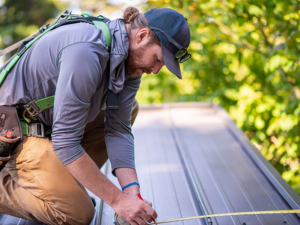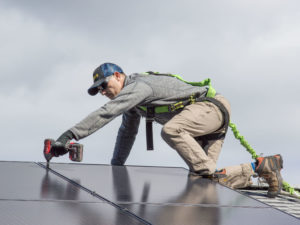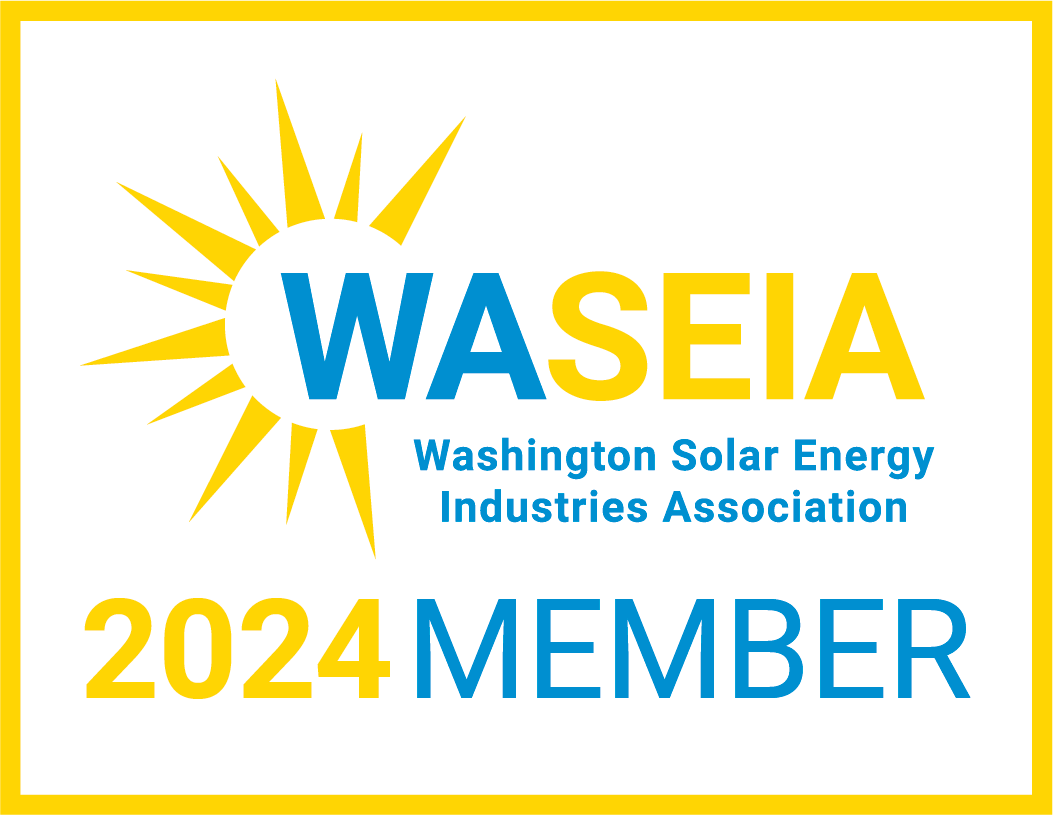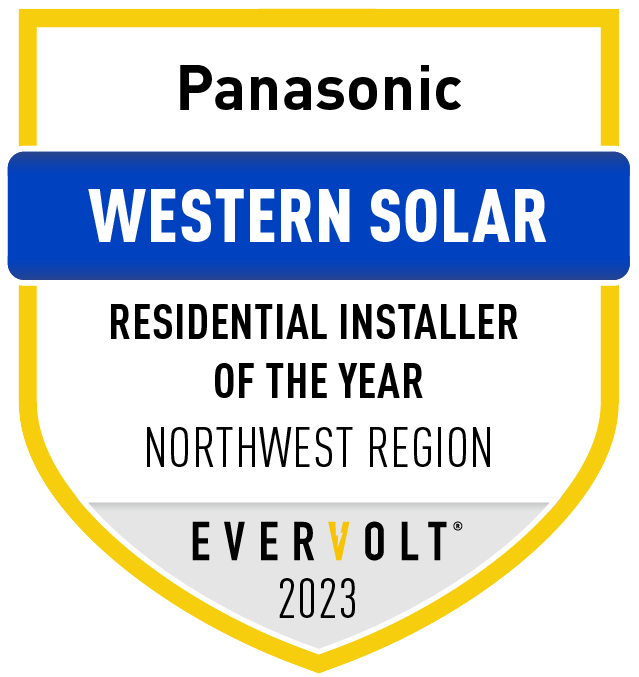1. Get multiple bids
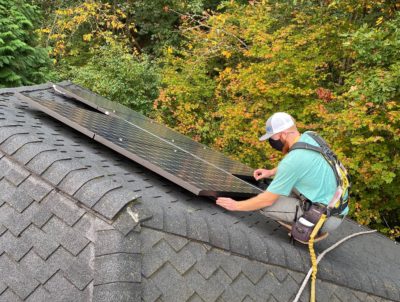 As with any profession, no two solar installers are alike. Some handle everything in-house, some subcontract. Some aim for quality, others are trying to beat everyone else on price. Unless you speak to multiple installers, you have no frame of reference to understand whether or not they are competitive, experienced, and transparent.
As with any profession, no two solar installers are alike. Some handle everything in-house, some subcontract. Some aim for quality, others are trying to beat everyone else on price. Unless you speak to multiple installers, you have no frame of reference to understand whether or not they are competitive, experienced, and transparent.
Tip: Local installers are answerable to their community and responsible for their work in a way that out of state sales operations aren’t. Try to make sure you are getting bids from installers based in your area.
2. Speak to the system designer
Everyone’s house is different. Different roof lines, different shading, different electrical panels and different energy usage. A well-designed solar system takes both your needs and the practical aspects of your house into consideration. A solar system is always a custom design. When you are getting solar bids, make sure you are dealing with the system designer and not just a commission-based sales rep.
Tip: To make sure you get the best result, challenge the sales rep. Ask them about your property, the pitch of the roof, how they have accounted for shade. If you don’t feel like the person you are talking to has an in-depth knowledge of the technical aspects of your system, ask to speak with the system designer, as they will ultimately determine whether the system operates as sold.
3. Understand how the system works and what equipment is being used
Equipment choice is important—don’t let anyone tell you otherwise! The solar industry is dynamic and constantly changing. The best value-for-money equipment on the market ten years ago is not necessarily the best value for money today. Your solar installer should have a good working knowledge and be considering various different equipment options. When you sign a solar contract, you should know exactly what you are buying and why that is the best option for you—this should mean you have discussed several different types of equipment with your system designer.
Tip: Some solar panel, inverter, and battery manufacturers require solar installers to be vetted and certified in order to install their products with the full warranty. When comparing bids, it always pays to ask your installer if they are authorized installers of the products they are selling, otherwise you could be caught without a full warranty. Also make sure the installer handles any product registration requirements.
4. Understand the financial case
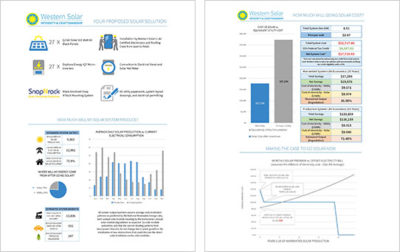
Every Western Solar quote includes a personalized analysis detailing your monthly and annual electricity usage, calculated system production, and energy cost analysis.
The financial case for solar is simple, but to most customers it is also a new way of thinking about energy, and this can lead less scrupulous solar salespeople to inflate the savings and tax credits associated with the system. The most important parts of your solar financial case are:
- how much energy the solar system will produce,
- how much money that ultimately saves you, and
- what is and isn’t included in your solar tax credit.
An accurate energy production estimate takes into account your location, roof pitch, orientation and the efficiency of the equipment being installed. Do not accept a ballpark estimate as a final production report—a system designer should be able to show you a detailed shading analysis specific to your roof. Double-check the math—what rate of inflation is being used on the cost of energy; what cost per kWh is being used? The devil is in the details.
Finally, your tax credit is based on the final cost of the system. If an installer offers you a rebate after purchase, they are artificially inflating the system cost to make your tax credit look bigger than it is. Remember, your tax credit is on the final amount you pay for the solar system after rebates.
Tip: We are all driven to focus on the final amount on the contract, but remember: this system is supposed to last for 25-40 years – warranties are really important. If a solar sales rep is showing you 25-year energy savings but the equipment they are suggesting only carries a 10-year warranty, they should also advise you on the cost out of warranty replacements.
5. Find examples of their work
It is always a good idea to talk to a company’s past customers and understand their experience. Ideally, you want to find both people who have had a system installed recently and also people who have had their system for 5-10 years. This helps you understand the current experience but also the long term customer service you can expect. However, don’t just rely on referrals—any contractor is likely to push you toward happy customers. Try to ask around and do your own research independent of the company, and if possible actually look at some of their work in your neighborhood. Is the work neat and tidy; are there exposed conduit runs everywhere; are the panels extending over roof edges and ridge lines? In short, would you want their system on your roof?
Tip: Find out how long the company has been installing residential solar in your area and how long the person you’re speaking with has been in their role. If it’s a new company or the person is a recent hire, ask them who they were working for before their current job and look up reviews for that company—that will give you a clearer idea of their work.
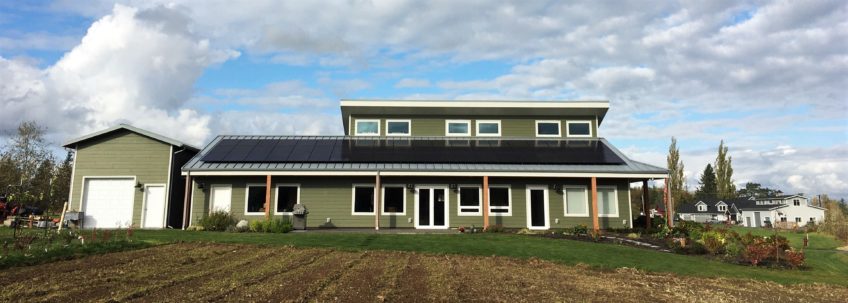
6. Sleep on it
Never (and we really mean never) feel pressured to sign the contract at the table in the sales meeting. Chances are that any “special discount” they offer you today, you can get them to honor tomorrow, and you need a chance to process what you’ve been told, compare bids, and make an informed decision. If the person you are speaking with seems desperate for the sale, they probably are. Remember, if during the course of the meeting a sales rep drops their price, it means they were originally trying to gouge you for the higher amount—decide whether that is the attitude you want in a company you will have to deal with for the next 25+ years.
Tip: A system designer needs to perform a site assessment before they put together your final bid in order to verify that the panels will fit, account for any roof vents, measure on-site shading and solar resource, confirm that the roof has enough life left in it to install over, and that there is adequate capacity in your electrical panel for the solar system. If no one has checked these things, then the savings estimate, roof layout and price probably aren’t accurate. Be wary of any sales rep coming out with a final contract drawn up before the site visit.



